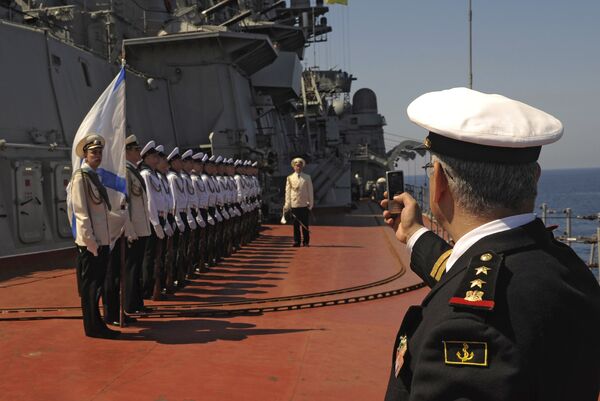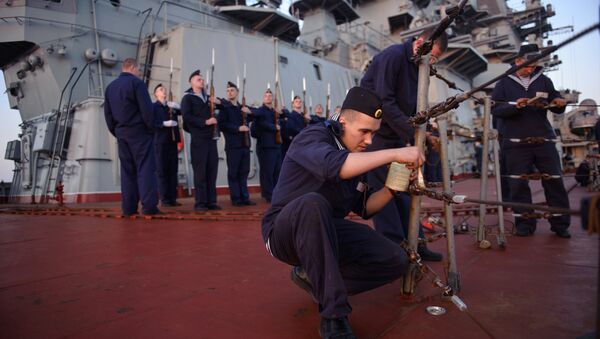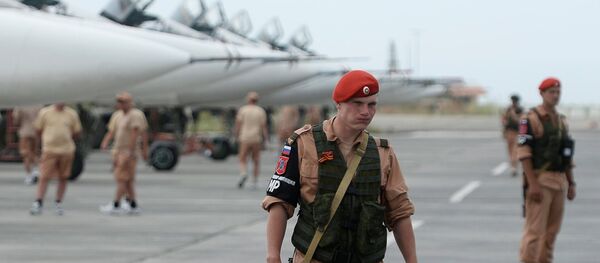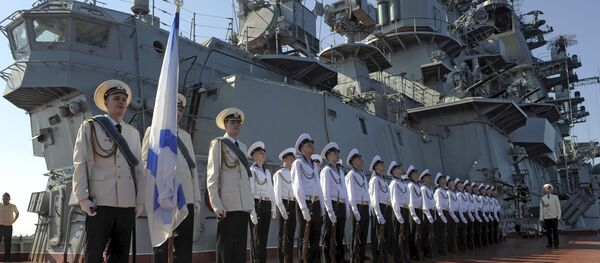His remarks came after Russian Deputy Defense Minister Nikolay Pankov said on Monday that Moscow will establish a permanent naval base in the Syrian port city of Tartus, home to a Russian Navy maintenance and support facility which was established by the Soviet Union in 1977.
Pankov also said that the Russian Defense Ministry was looking into reestablishing Russian bases in Cuba and Vietnam.

In addition, media reports cited Russia's plans to return to a former Soviet air force base in the Egyptian city of Sidi Barrani.
Referring to Russia, Khrolenko explained that the naval bases abroad ensure the safety of the country's major sea lanes and increase the navy's combat capability by bringing missiles closer to the strategic areas of the potential enemy.
According to him, the naval bases add to the more effective deployment of warships across the World Ocean, helping to focus on "potentially dangerous areas and crisis regions."
"The foreign naval bases do not only indicate the status of the country, but also contribute to its sustainable economic growth and the safe development of ocean resources. These bases can be called a military and diplomatic instrument to strengthen national and international security," he pointed out.
Khrolenko recalled that since the end of the last century, Russia has pursued peaceful policies. Meanwhile, a significant proportion of US and NATO military operations were conducted without the UN's approval, including operations in Serbia, Afghanistan, Iraq, Pakistan, Yemen and Somalia.
"Obviously, Russia should rely on its navy and aerospace forces rather than the West's favor when it comes to the struggle for a brighter future," Khrolenko said.
"In the Indian and Pacific Oceans, Russia is successfully strengthening its military cooperation with the naval forces of India and China," he added.
Khrolenko specifically drew attention to the fact that the navy remains the basis of Russia's maritime potential and that naval activity is related to the top state priorities.
"Russia's new Maritime Doctrine underscores the importance of the country's adequate and permanent naval presence in the World Ocean. In this sense, the naval bases increase the autonomy of such a presence," he pointed out.
In an interview with Sputnik earlier this month, editor-in-chief of National Defense Magazine Igor Korotchenko described Russia's decision to establish a full-scale base in Tartus as a "powerful move."
He said that first and foremost, the base will help to protect Russia's national interests and improve the country's geopolitical standing in the Middle East.
He also said that the base in Tartus will provide a "reliable support area" to the Russian naval forces deployed to the region. "A full-scale base will help to improve logistical and technical support for our naval assets," he explained.
Russian introduced its new naval doctrine in June 2015. According to the document, Crimea, the Arctic and the Atlantic and as well as cooperation between Russia and China in the Pacific are becoming key priorities for Russia.
According to Deputy Prime Minister Dmitry Rogozin, the main reasons for adopting amendments to Russia's maritime doctrine of 2001 are "the changes of international affairs" and the consolidation of Russia as a maritime power.





